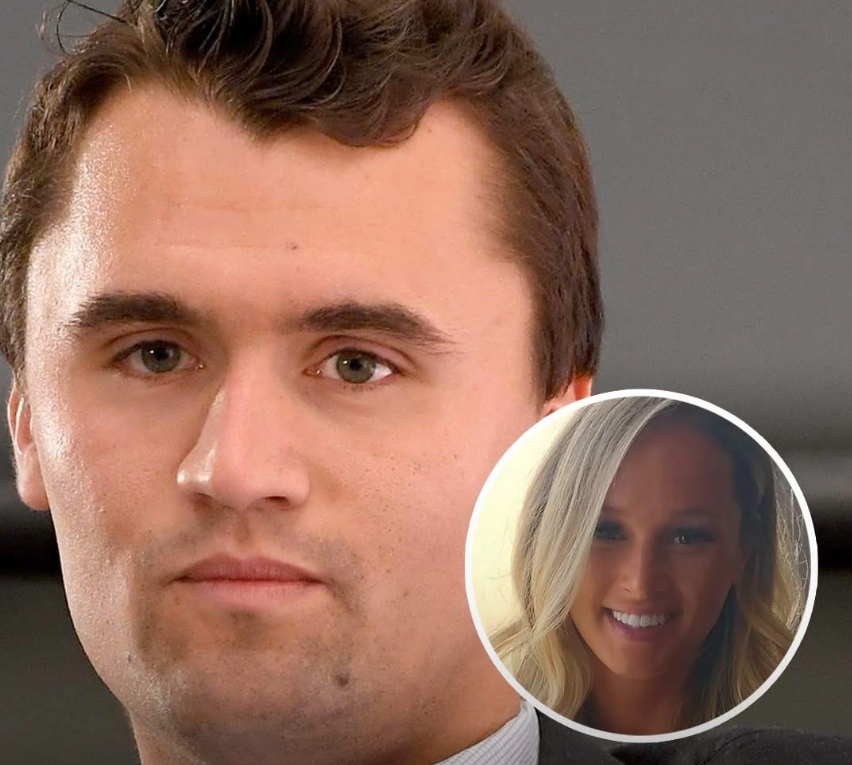A Hospital, Two Professionals, and the Echo of a Murder
The hospital corridors were silent, a heavy, almost unnatural silence. Staff hurried through the halls exchanging short phrases, patients waited quietly in their rooms, and yet something invisible weighed in the air. No one could have imagined that an ordinary workplace dispute would turn into a story intertwining medicine, politics, and morality, sparking a national debate.
At the center of this story stood a nurse, a doctor, and the shadow of a controversial figure: Charlie Kirk. His assassination on September 10 at Utah Valley University had shaken the political and cultural world in the U.S. But what followed in the days after—far from the crime scene, inside a New Jersey hospital—would raise deep questions about freedom of speech, professionalism, and the line between personal beliefs and public responsibilities.
The Echo of a Death
Charlie Kirk, founder of Turning Point USA, was no stranger to attention. To his supporters, he was a bold voice defending conservative values. To his opponents, he was a provocative, polarizing figure.
News of his assassination during a speech spread like lightning. Some reacted with genuine grief, others with cold indifference, while some went even further, losing their reputations or even careers because of their comments. MSNBC analyst Matthew Dowd left the network after an inappropriate statement, while the vocalist of the British punk band Bob Vylan was accused of celebrating Kirk’s death.
In this tense climate, an unusual incident erupted at Englewood Health—where an argument between a nurse and a doctor would bring to light a pressing question: what is acceptable to say when it comes to life and death?
The Clash in the Hospital
Lexi Kuenzle, a nurse with two years of experience at Englewood, received the news of Kirk’s death with sadness. Not because of politics, but because, as she put it, “death should never be a reason for celebration.”
But her colleague, Dr. Matthew Jung, allegedly reacted very differently. According to Kuenzle, he said Kirk “deserved it” and that “his time had come.” For her, these were not just careless words in a casual conversation—but an open endorsement of violence.
Shocked, she reported him to hospital leadership. For her, it was not a political issue, but a matter of principle. “Silence was not an option. It was my duty as a nurse to protect patients and the integrity of the profession,” she told Fox News Digital.
But after her report, both she and the doctor were suspended pending investigation. Kuenzle felt it was a punishment for telling the truth, while the hospital presented it as standard procedure.
From Suspension to Lawsuit
The story soon broke beyond hospital walls. Kuenzle filed a lawsuit against Englewood Health and Dr. Jung, claiming professional damage and retaliation. She argued that her reputation and career were at risk simply because she had spoken out.
According to her, Dr. Jung tried to settle the matter by offering to buy lunch for colleagues as a gesture of “apology,” but Kuenzle saw it as empty and insincere.
The case went viral online, becoming part of a wider debate: how should professionals behave when personal beliefs collide with ethical responsibility, especially in the face of death?
The Hospital’s Position
After days of speculation, Englewood Health issued a statement:
“As required by protocol, Englewood Health carefully investigated the September 10 incident between a physician and a nurse in a patient care area. We have accepted the physician’s resignation, while the nurse is expected to continue her scheduled shifts.”
They added: “The nurse was never fired, was never told she would be fired, and will not lose any pay.”
Kuenzle returned to work, while Dr. Jung departed under a cloud, with his career badly damaged.
Free Speech or Professional Violation?
The case ignited a national debate: Were the doctor’s words simply harsh free speech? Or words that violated the very foundation of the medical profession, built on trust and neutrality?
For many, medicine is not just another job—it is a calling that requires respect for every human life. And when a doctor celebrates someone’s death, it undermines the trust patients place in healthcare.
Others saw it differently, arguing that suspending both staff members was an “overreaction” meant to avoid conflict, rather than addressing the deeper ethical question.
Politics in the Background
Charlie Kirk was never a neutral figure. He polarized America in life—and even in death, continues to do so. The reactions to his murder revealed just how deep the nation’s divisions run, divisions that extended even into Englewood hospital.
This was not just a workplace dispute. It was a mirror of a divided society, where even the most ordinary conversations carry political weight.
A Nurse’s Stand
Kuenzle says she did not seek this battle. She didn’t want headlines or lawsuits. She wanted accountability. For her, the issue was not politics, but the boundary between what is acceptable and what is not.
“Even if I disagreed with Kirk’s ideas, I could never rejoice in his murder. If we allow that mindset into a hospital, then we’ve lost everything we stand for,” she said.
Lessons and Consequences
This case carries important lessons:
For institutions: how to handle political conflict without losing neutrality;
For professionals: where freedom of speech ends and ethical duty begins;
For society: the dangers of polarization that seeps into every space—even those meant to remain impartial.
The hospital tried to preserve balance by reinstating the nurse and accepting the doctor’s resignation. But whether that balance will hold remains to be seen.
A Painful Reminder
The murder of Charlie Kirk was a shocking event. But its echo still lingers: in media, in art, and even in hospitals. This case reminds us that words have consequences, freedom of speech is not absolute, and professions built on trust demand a higher standard.
In the end, this story was not only about a doctor and a nurse, but about a nation struggling to find the boundary between freedom, responsibility, and humanity.
